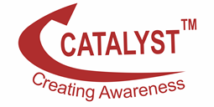In today’s fast-paced digital world, the concept of an “Attention Recession” has emerged as a pressing issue affecting individuals and society as a whole. This phenomenon refers to a significant decline in people’s ability to focus and sustain attention, largely due to the overwhelming influx of information and distractions that characterize our daily lives. As we delve into the intricacies of this crisis, we will explore its causes, consequences, and possible strategies for mitigating its effects.
The Nature of Attention Recession
Attention is a finite resource. In psychological terms, it is the cognitive process of selectively concentrating on one aspect of the environment while ignoring others. With the rise of the internet, smartphones, and social media, our attention spans have been tested like never before. Research suggests that the average human attention span has decreased dramatically, from approximately 12 seconds in 2000 to just 8 seconds today—less than that of a goldfish. This alarming trend raises questions about our ability to engage deeply with content, think critically, and maintain meaningful relationships.
Causes of Attention Recession
- Information Overload: The digital age has ushered in an era of information abundance. Each day, we are bombarded with emails, social media notifications, news alerts, and advertisements. This constant influx of information can overwhelm our cognitive capacities, making it difficult to focus on any single task.
- Multitasking Culture: Many individuals pride themselves on their ability to multitask. However, research indicates that multitasking can lead to reduced productivity and increased cognitive load. Switching between tasks can fragment our attention, making it harder to concentrate on any one activity for an extended period.
- Social Media Distractions: Platforms like Facebook, Instagram, and TikTok are designed to capture our attention and keep us scrolling. The addictive nature of these platforms often leads to prolonged periods of distraction, reducing our ability to engage in deep, focused work.
- Constant Connectivity: The expectation to be constantly available through smartphones and messaging apps can create a sense of urgency that interrupts our focus. Notifications can pull us away from important tasks, leading to a cycle of distraction and reduced productivity.
Consequences of Attention Recession
The implications of an attention recession are far-reaching and can affect various aspects of our lives:
- Decreased Productivity: As our ability to concentrate diminishes, so does our productivity. Tasks that once took a reasonable amount of time may now require significantly longer to complete, as we struggle to maintain focus amidst distractions.
- Impaired Learning: For students and lifelong learners, reduced attention spans can hinder the ability to absorb and retain information. This can lead to poor academic performance and a lack of depth in understanding complex subjects.
- Mental Health Issues: Chronic distraction and inability to focus can contribute to feelings of anxiety and stress. The constant pressure to stay connected and respond quickly can exacerbate mental health problems, leading to burnout and fatigue.
- Deteriorating Relationships: Attention recession can also impact our personal relationships. When we are distracted by our devices, we may fail to engage fully with those around us, leading to superficial interactions and weakened connections.
Strategies for Combating Attention Recession
Addressing the attention recession requires a multifaceted approach. Here are some strategies that individuals and organizations can adopt:
- Digital Detox: Taking breaks from technology can help reset our attention spans. Setting aside designated times to unplug from devices can foster deeper engagement with tasks and relationships.
- Mindfulness Practices: Incorporating mindfulness techniques, such as meditation and focused breathing, can enhance our ability to concentrate. These practices train the mind to remain present and reduce susceptibility to distractions.
- Task Prioritization: Organizing tasks based on priority can help individuals focus on what truly matters. Utilizing tools like to-do lists and time-blocking can create a structured approach to managing tasks effectively.
- Limiting Multitasking: Encouraging a single-tasking approach can improve productivity. By focusing on one task at a time, individuals can achieve a greater sense of accomplishment and clarity.
- Creating Distraction-Free Environments: Designing workspaces that minimize distractions—such as turning off notifications and creating quiet zones—can significantly enhance concentration levels.
Conclusion
The attention recession is a critical issue that demands our attention (ironically). As we navigate the complexities of modern life, it is essential to recognize the factors contributing to this crisis and take proactive steps to reclaim our focus. By fostering environments that promote deep engagement and adopting mindful practices, we can combat the effects of attention recession and cultivate a more fulfilling, productive life.


